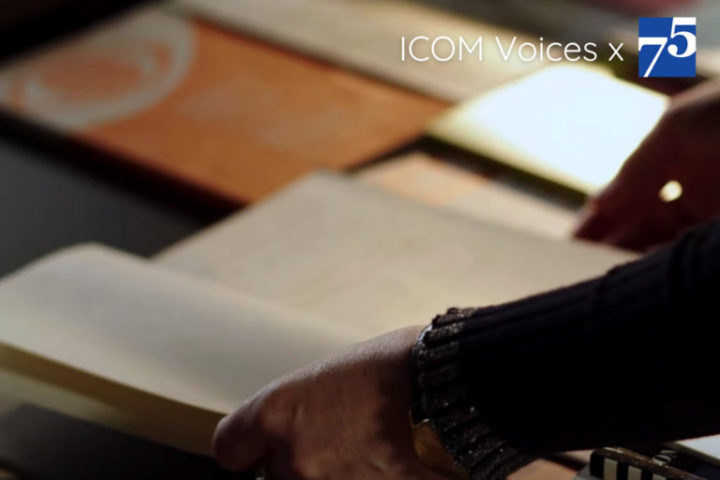Every year in November, ICOM celebrates the anniversary of its creation.
In 1947, it was in Mexico City that ICOM blew out its first birthday candle, by organising an “interim” conference from 7 to 13 November under the auspices of the second UNESCO General Conference. In the chronology of ICOM established by the authors of the book “History of ICOM (1946-1996)“, this event is considered to be the first General Assembly of the organisation. The list of registered participants included 100 people. It was also intended to prepare the first future biennial conference, already scheduled for the following year in Paris.
Among the topics chosen for discussion, particular attention was given to the theme of education. The archival document we have chosen to present here is the presentation made by Chauncey J. Hamlin, the founder and the first president of ICOM, to introduce the session entitled “Museums as Active Educational Institutions”, on 11 November 1947.
In this text, after mentioning the financial stakes for a museum in the services it renders to the community and recalling that the success of any initiative rests above all on the co-operative and intelligent teamwork of its staff, he details his recommendations along five points : Regularly renewing the permanent collections on display and creating temporary exhibitions to bring the museum to life for visitors; offering educational activities within the museum for both children and adults for the benefit of both groups and the museum itself; offering services outside the museum to reach a wider audience; collaborating with other museums and cultural institutions; and not neglecting public relations and various means of communication to inform the public about these programmes.
The result of any such active dynamic programme as I have described will be measured not only by increased museum attendance but by that kind of attendance which will bring to the Museum’s educational efforts active and informed support, and make of its community a better place within which to live and carry on one’s work.
Building on these recommendations at a local level, he then broadens the perspective of the benefits of museum education to the international community, and suggests that through the organisation of international travelling exhibitions, conferences, exchanges of objects and personnel, museums as a whole, and ICOM which represents them in particular, will play an active part in the mutual understanding of peoples.
It is only through such international understanding and cooperation that the world can build the structure of permanent peace.
To this cause we are happy to pledge our support.
For further information
ICOM’s online library includes some 30 digitised documents directly related to this interim conference and the UNESCO conference, including the full minutes of the 11 November session on “The role of museums as institutions actively engaged in education” (in French), as well as invitation letters, programme and registration forms, lists of participants, opening address, minutes of meetings, and documents attesting to the participation of ICOM members in UNESCO’s work on museums.
These resources are reserved for ICOM members, who will find them in the members’ area of the site, under the heading “Get involved/Online library“.
Simple search keywords: Mexico 1947
